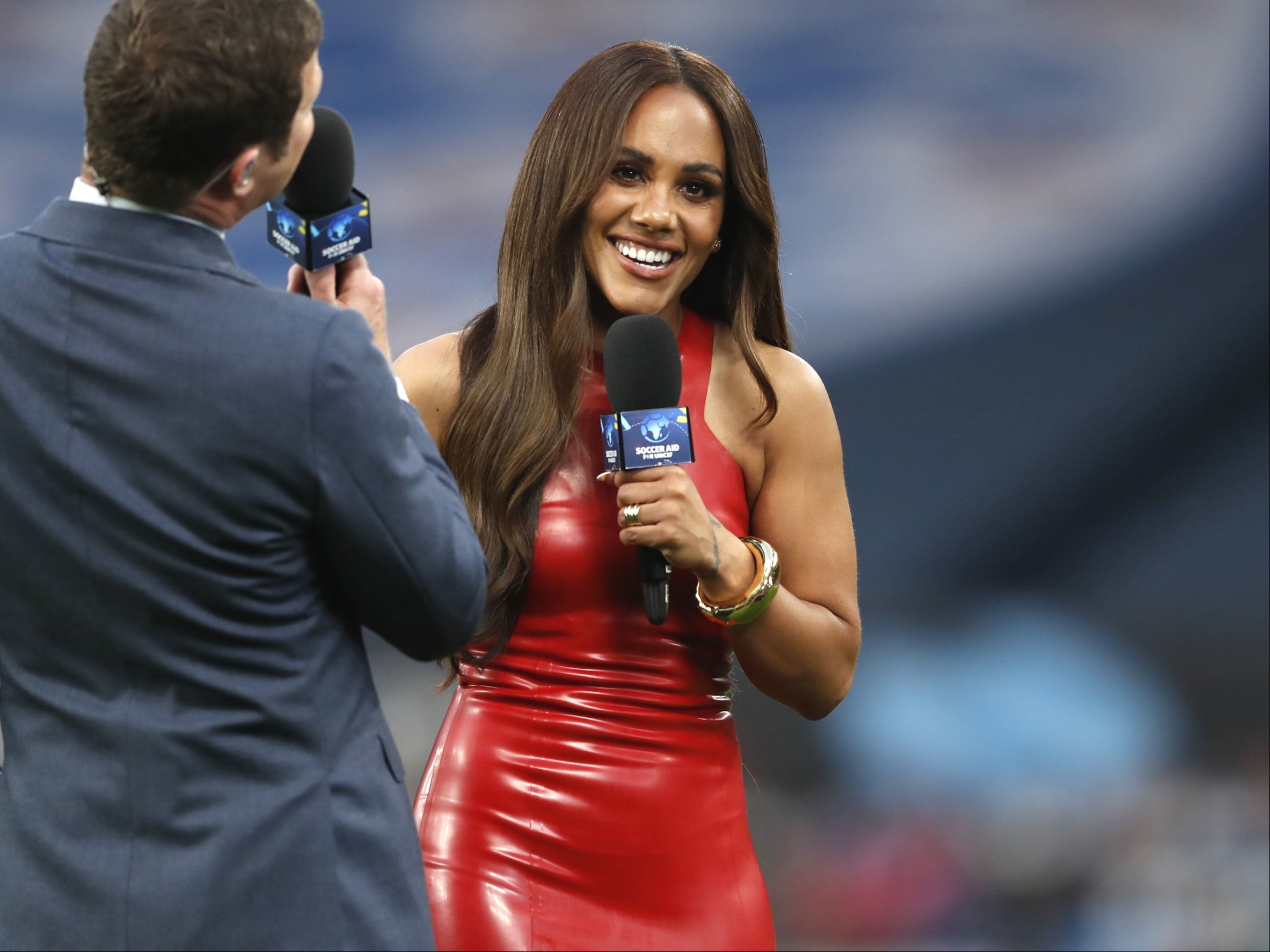Alex Scott is a professional powerhouse. Who gives a hoot about what she wears to work?
In an industry structured to facilitate and promote men at every level, this objectification creates yet another barrier to diversifying our ‘beautiful game’, writes Alex Greenwood


With the end of the professional football season, last weekend witnessed the annual charity match Soccer Aid kick off at Old Trafford. One might expect media outlets this morning to celebrate the £15,000 raised for Unicef, yet a quick Google of the event sees headlines dominated by the physical appearance and wardrobe choices of female presenter Alex Scott – simply because she wore an iconic red dress.
Once again, the depressing reality is that a shining career as a player, author, and pundit pales into insignificance for much of the national viewing public, in a way we never see for a man. The extreme scrutiny women face in this regard, creates an environment that diminishes women’s experience, expertise and intelligence.
In the small echo-chamber of the internet that my algorithm feeds me, there is a halo of optimism around women in football – a sense of power and limitless ambition. On the day of the Soccer Aid game, I spent my sunny Sunday at a charity match in Worthing playing for Ravi’s Dream Team, a wonderful initiative inspired by eight-year-old Ravi Adelekan and raising money for The Brain Tumour Charity, starring the likes of Katy B, Romy from The xx and Joe Mount from Metronomy. The game was preceded by a children’s tournament, and I couldn’t believe the number of young girls playing ahead of us. At the end of the match, it was the girls who pushed their way through to ask their favourite players for autographs, and queued to take penalties in the goal. There is an undeniable momentum for women in football and the importance of representation can not be overstated.
In an industry, nevertheless, structured to facilitate and promote largely homogenous men at every level, this objectification creates yet another barrier to diversifying our “beautiful game”. For Scott, this is against a backdrop of challenges in her personal and professional life, exposed in her book released earlier this year. She has referred to receiving sexist abuse “every single day” on social media.
More broadly, in the broadcast world, examples of male pundits offering lacklustre cliches, misnaming players, or fumbling the increasingly complex touch screens at their command is commonly laughed off as charm. Yet when women happen to misstep or pass a remark against a club, the level of vitriol is shuddering. Karen Carney, another ex-pro with a glittering career of football accolades, spoke of having a panic attack live on air because of the level of abuse she suffered.
Beyond the social impact, female pundits, in my view, often offer far deeper critical engagement with the game, likely owing to their need to work twice as hard to arm themselves against, from some quarters, online hate. I remember having a conversation with Fara Williams ahead of a Women’s Super League game and being blown away by her encyclopedic knowledge of the teams’ tactical setups.
While I can always appreciate a quick meme, fire emoji or celebration of an iconic outfit on any public figure, the click-bait driven objectification of women who have crashed through glass ceilings speaks to a broader reality across our screens and media. This offers a clear indication of the position of women in society. The message: we have work to do.
Thanks to the soft power of last summer’s Euros, the horizons of world football, in many senses, are expanding at a rapid pace and beyond all recognition. You need only walk through a community playing field to see evidence of the proliferation of the game amongst young girls. The impact that visible professionals such as Alex Scott offer in creating a role model for the likes of the girls I watched battling it out on the pitch is critical to the development of the women’s game, and a culture that enables equal opportunity within and beyond sport. Aside from this, the level of quality and knowledge these professionals offer broadcast media is manifest. Why don’t we just let them do their jobs?
Join our commenting forum
Join thought-provoking conversations, follow other Independent readers and see their replies
Comments


Bookmark popover
Removed from bookmarks